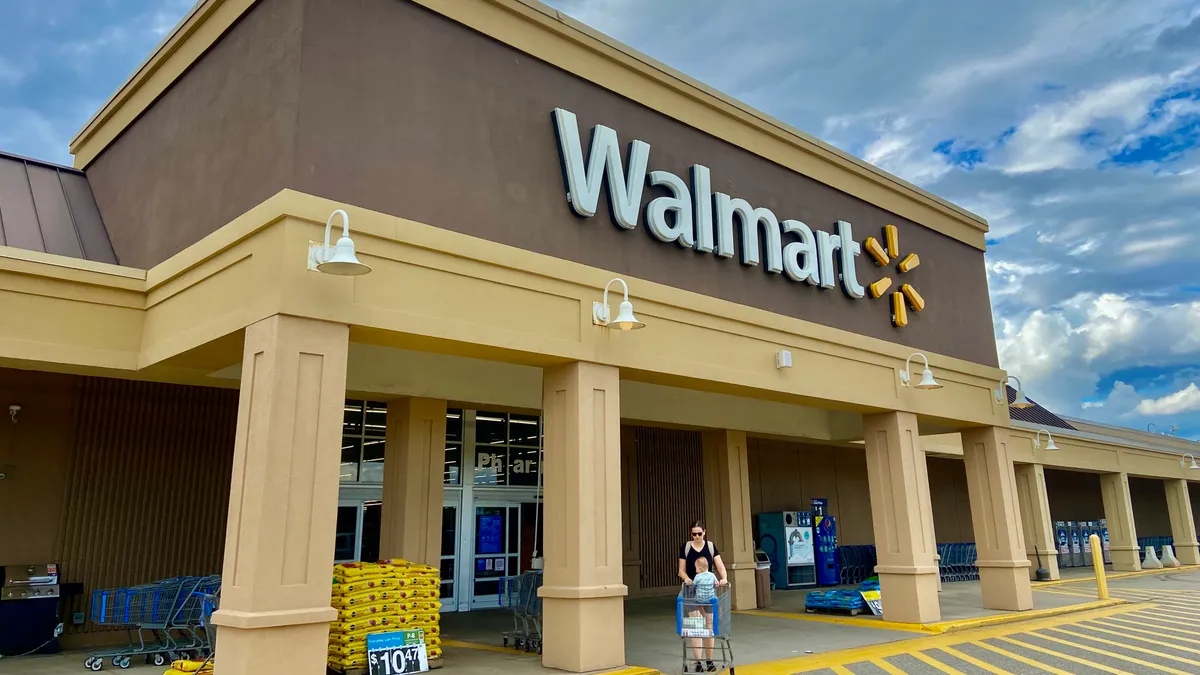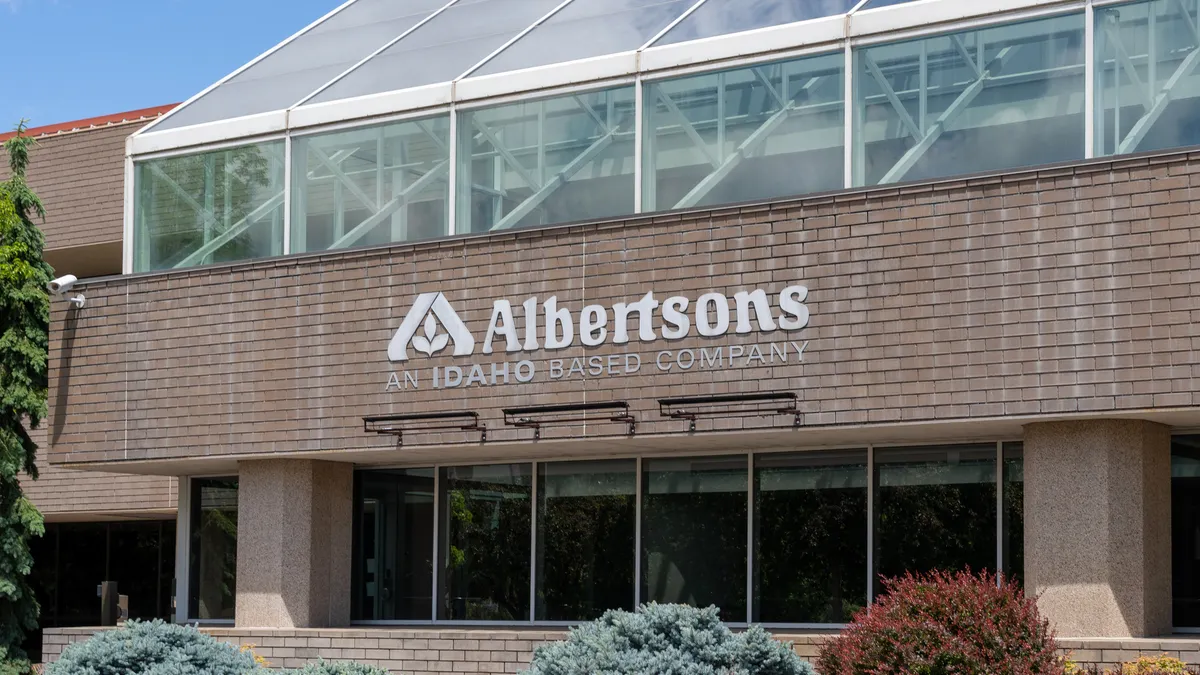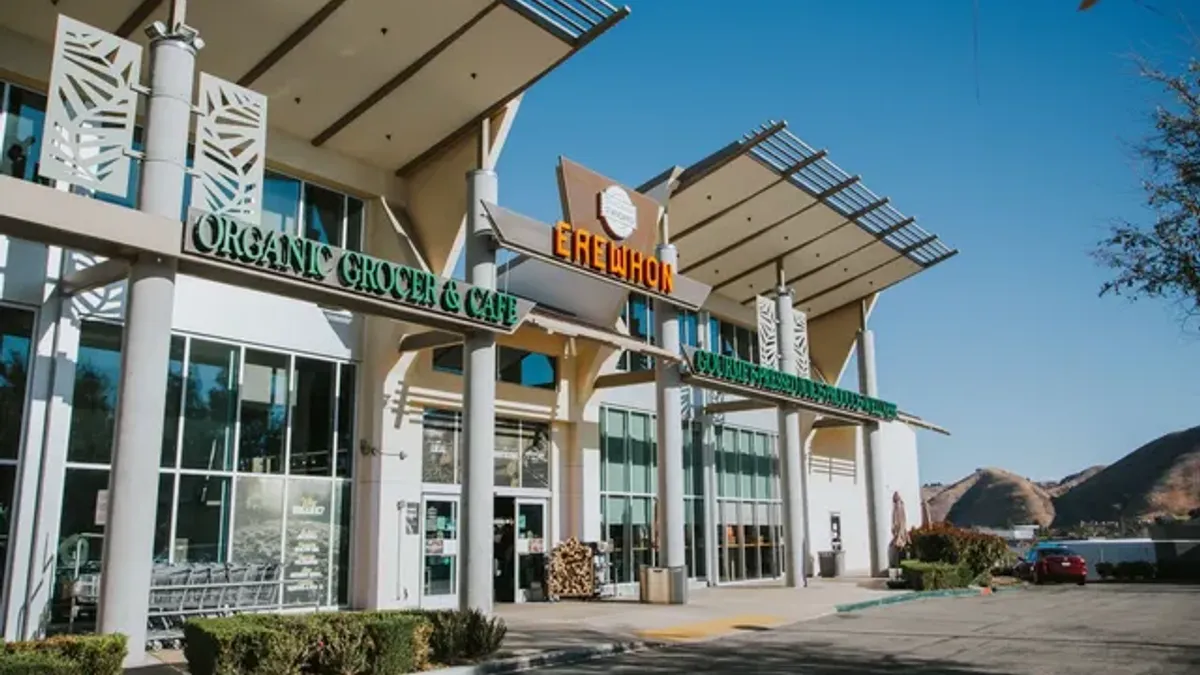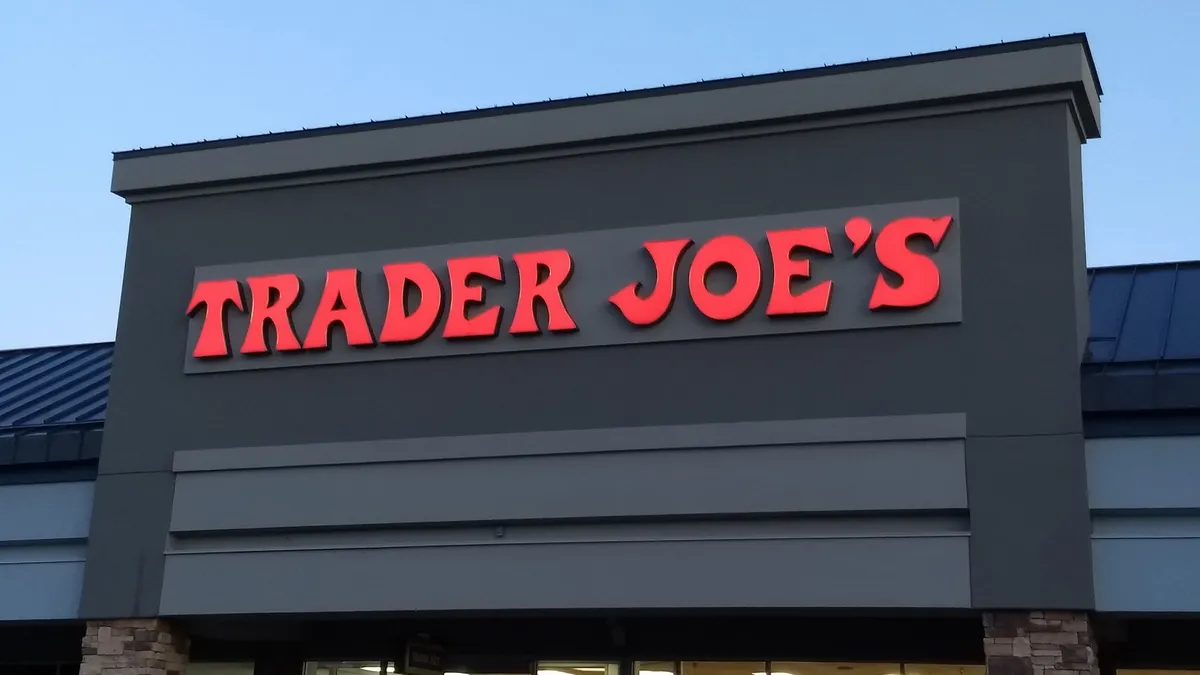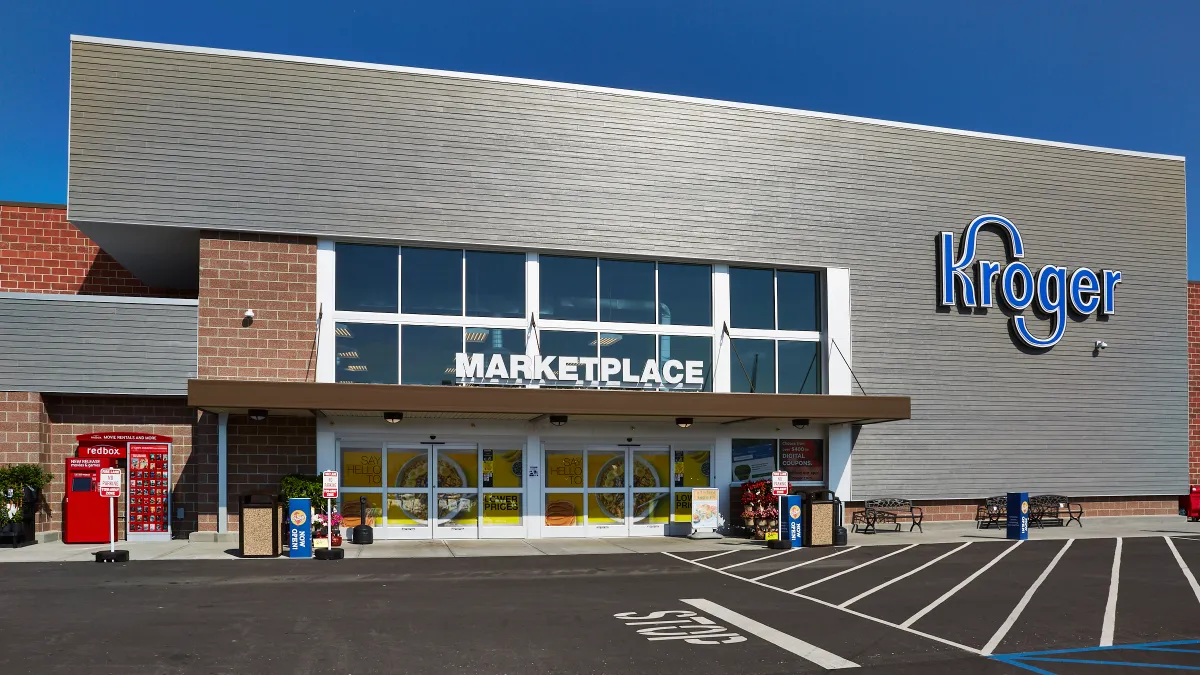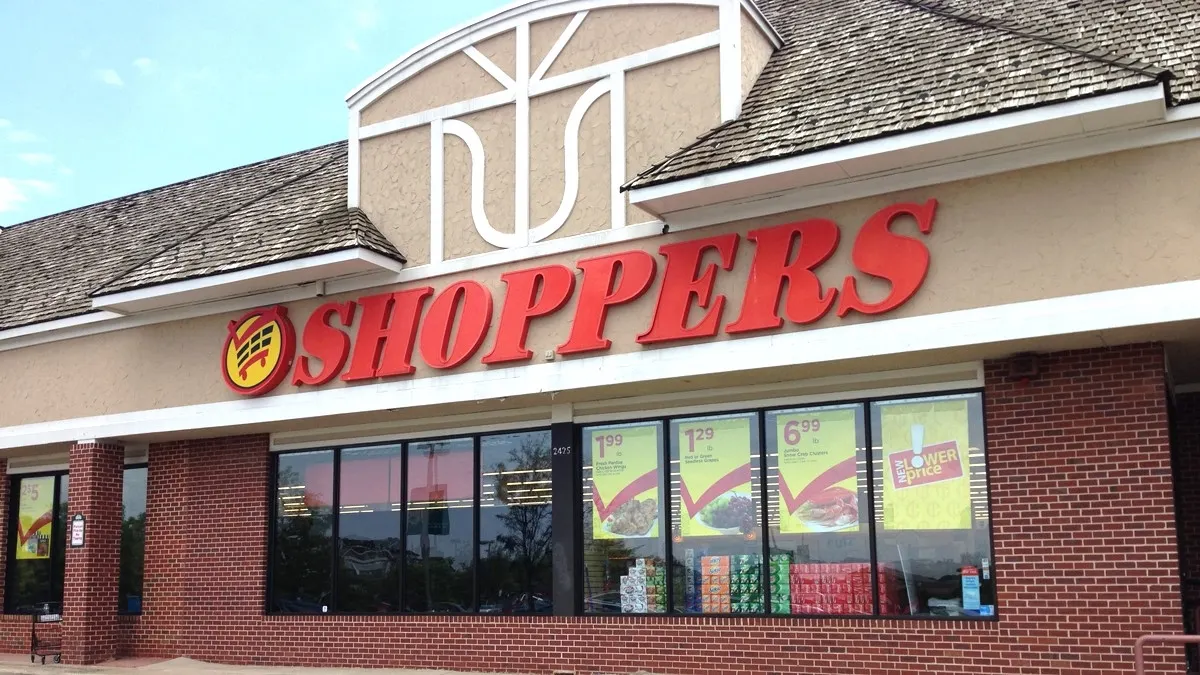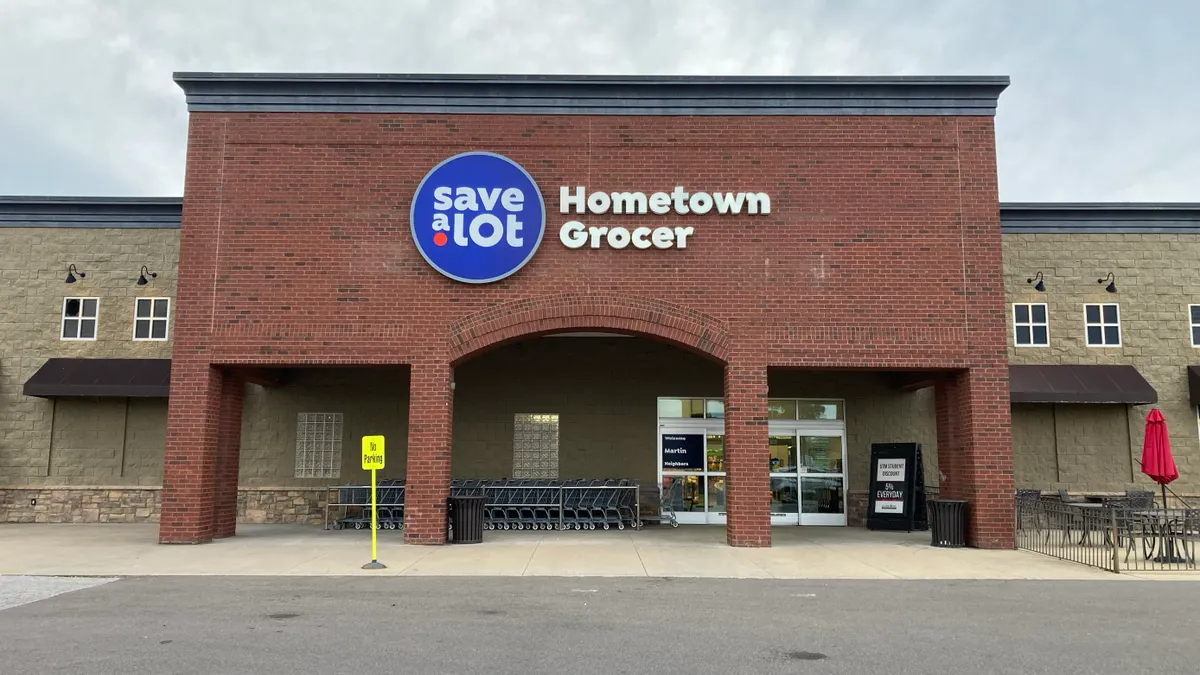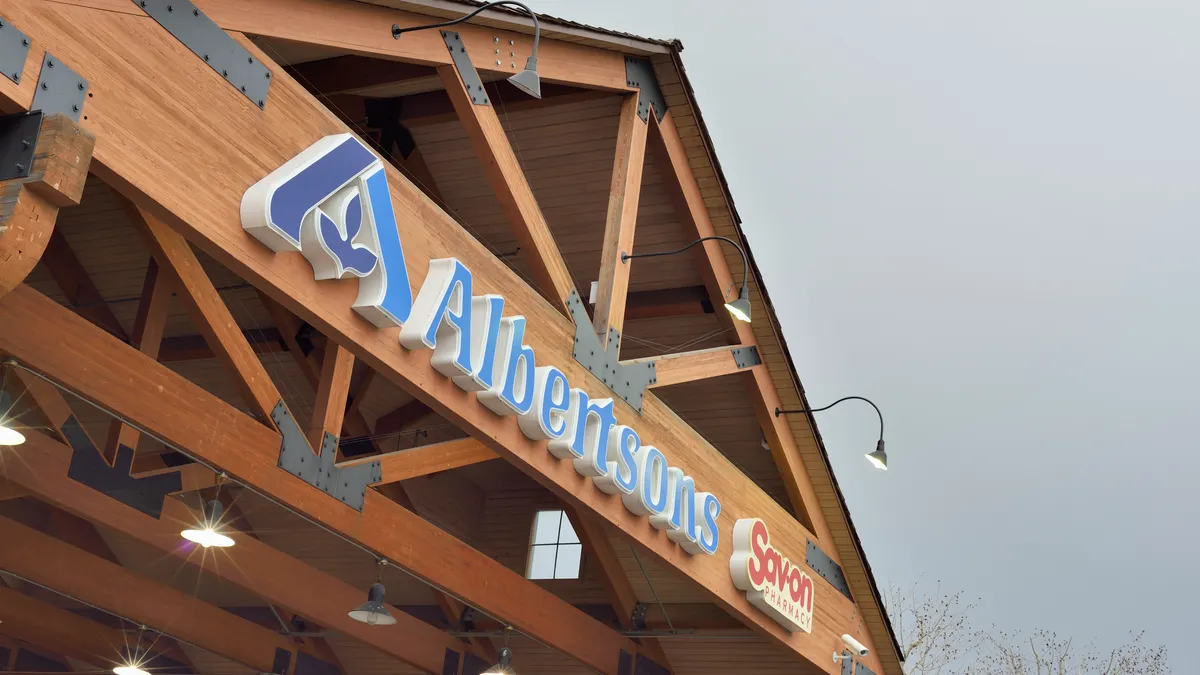Store shelves stripped bare. Apps crashing from overload. Checkout lines wrapping around the store perimeter.
A few weeks into COVID-19 panic buying, these scenes have become familiar ones to grocery retailers across the country. And it’s driving an urgent need for more employees to staff stores, help fulfill and deliver orders and clean around the clock.
Under normal circumstances, Matt Lutcavage, chief human resources officer at The Giant Company, told Grocery Dive that Giant and Martin’s stores usually look to hire anywhere between six to 12 team members at one time for one store — usually to fill roles like cashier, deli clerk and shelf stocker.
Now, amid the coronavirus outbreak, hiring needs have jumped dramatically. "We’ve seen it increase almost exponentially just in the last few weeks alone," Lutcavage said.
The company operates supermarkets in Pennsylvania, Maryland, Virginia and West Virginia, all areas that are escalating social distancing measures as cases of COVID-19 increase. The retailer is trying to hire between 24 and 30 people per store to handle the heightened business and maintain operations, and its Giant Direct fulfillment centers will need to hire a up to two dozen more people to support current demand for online orders.
"From a total company perspective, certainly, we’re looking for a few thousand," he said.
Do people want to take a job in grocery?
With recommended or required shutdowns for non-essential businesses spreading across the U.S. during the pandemic, grocery stores are a bright spot for people who have lost their jobs or had their hours cut in sectors like clothing retail, travel and tourism, restaurants and bars.
In Miami, Hispanic grocery chain Sedano’s Supermarkets has teamed up with two local restaurants to provide temporary jobs to restaurant employees whose hours have been cut as their employers move to delivery and takeout only. Sedano’s said in a press release it will add up to 400 part-time and full-time positions across its stores.
But can grocers find applicants who are willing to work with the public and risk exposure? And are they comfortable taking on what could be a temporary position?
According to Chris Kelly, vice president with the Connors Group, which advises retail clients on labor and workflow management, the harsh reality is that many people need jobs, or will soon, even if it puts them at some type of risk.
"Taking a part-time job, and we honestly don’t know how long that job may be for, is probably better than the alternative of not working," Kelly told Grocery Dive.
"The fear of not having a job is pretty great and pretty dramatic especially in tough economic times, which is what we’re embarking upon."

Marissa Baker
Industrial hygiene program director, University of Washington
Marissa Baker, assistant professor and industrial hygiene program director at the University of Washington, agrees. In an interview with Grocery Dive, she noted these jobs are on the front lines and are essential services.
"For many people, the scarier part is not having a job. And that can, in turn, lead to this idea of presentee-ism, which is when people come to work sick when they really shouldn’t come to work at all," she said, noting that even people with paid leave may go to work sick.
"The fear of not having a job is pretty great and pretty dramatic especially in tough economic times, which is what we’re embarking upon," Baker noted.
Giant isn’t struggling to find applicants so far, Lutcavage said, and in fact, interest in jobs is skyrocketing.
"In many cases, people are going directly to management and we’re trying to do on-the-spot interviews where possible," he said. The Giant Company is communicating widely that it’s hiring, and also assuring job seekers that even if their interest is temporary, Giant still wants to hire them.
The number of unemployed in the U.S., and in The Giant Company's territory, is climbing fast. The New York Times reported that Pennsylvania has been inundated with more than 180,000 unemployment insurance claims in the last few days.
"We’ll find you temporary work in some of those areas like front-end and stocking and e-commerce," Lutcavage said.
Keeping workplaces safe for new and current employees
Eventually, the flow of applicants may tighten as multiple grocery companies pull from the same pools of workers. In that scenario, one way to attract applicants to one company over another, Baker said, is to not only offer paid sick leave, but to empower employees to take it.
"It’s making sure that people not only have the paid sick leave, but they're taking it and they don’t face any repercussions, and that there’s no stigma attached to it," she said.
To keep employees safe and healthy, Baker recommends employers stagger start and end times so a large group of people doesn’t show up and leave at the same time. It’s also important to stagger breaks and lunches, and give people more frequent but shorter breaks so they can regularly wash their hands and regroup.
In addition to upping staff count, grocers need to relieve current employees who are getting sick or wearing out. The Giant Company offers a relaxed attendance policy so people who aren’t feeling well or are worried can stay home. Lutcavage said Giant is starting to see some absences among those who are concerned or are self-quarantining because they are high risk or not feeling well.
"We’re obviously trying to urge people to stay home and will need to replace them as well," he said.
Mercato, which powers e-commerce for independent and specialty grocers, works with some retailers that are spread thinner than larger supermarkets because they already work with fewer employees. Bobby Brannigan, CEO of Mercato, recently told Grocery Dive he’s seeing some businesses close for a day not because they need more product, but because workers need a day off.
"They’re so exhausted because it’s 12 hours a day, seven days in a row," he said.
For store managers, who are salaried employees, burnout is a reality as well. Giant has just implemented a four-day work week for store managers, where they have four days on and three days off, to make sure they are able to rest and recuperate.
"This is a group that’s critical to us to run the stores, so we announced that earlier this week as a best practice," Lutcavage said.
Another important part of keeping grocery employees safe is to make sure they know they are not required to enter a situation that makes them feel uncomfortable, Baker said. For example, if a delivery worker arrives at a home with a grocery order and doesn’t feel comfortable knocking on that door for any reason, they should not be expected to.
Beyond the constant cleaning and sanitizing that many grocery stores have already implemented, organizations should also make sure their ventilation systems are working properly, said Mike Cooper, a certified industrial hygienist and adjunct professor at Boise State University. He said he knows of some companies that have started pumping outside air into their buildings rather than recirculate the air indoors. It’s a more expensive alternative, but it is an option.
Cooper also noted stores should ask customers to stop bringing their own bags to stores, because while it’s more eco-friendly, data from China suggests COVID-19 can be spread on paper or plastic, which can expose both shoppers and employees.
"Provide good, simple guidelines to employees," Cooper said. "You don’t have to be a health expert to take some of these questions and decide how you’re going to handle them. And then that becomes part of the training so folks have more comfort if they’re going to be working with the public in this type of situation."
Training temporary hires
Most grocery companies have standard training procedures and onboarding processes for new hires under normal circumstances. But with hiring speeding up amid the pandemic, Kelly said the normal ramp-up period where people are trained on policies, procedures and customer service may not be necessary right now.
"I think where grocers need the help right now is with the basics," he said. "Putting product on the shelves and bagging groceries. Those two activities don’t require a lot of training, they don’t have to be perfect, they don’t have to know how to do everything at the store."
Baker cautions grocers not to be too hasty with their onboarding process and to make sure new employees are getting trained safely. That includes making sure training is actually taking place and that it is happening in small enough groups so that employees can maintain social distancing.
"Putting product on the shelves and bagging groceries. Those two activities don’t require a lot of training, they don’t have to be perfect, they don’t have to know how to do everything at the store."

Chris Kelly
Vice president, The Connors Group
"When you are hiring a bunch of people very rapidly, it can be hard to ensure they’re all getting the proper training because there’s a lot of push to, 'We’ve got to get them working, we’ve got to get them stocking shelves, we’ve got to get them delivering,'" Baker said.
The Giant Company is offering an abridged version of its typical onboarding process for new employees, Lutcavage said. That includes completing proper paperwork, making sure the hire understands what their role is and getting them activated.
"But I think what’s important for us, one shortcut we can’t take is if they come to work for us, they feel part of our family," Lutcavage said.
With all the uncertainty, the ability to offer employment for people who need it during this crisis is a major responsibility for The Giant Company, Lutcavage said.
"We can play more than a role of just providing food."







